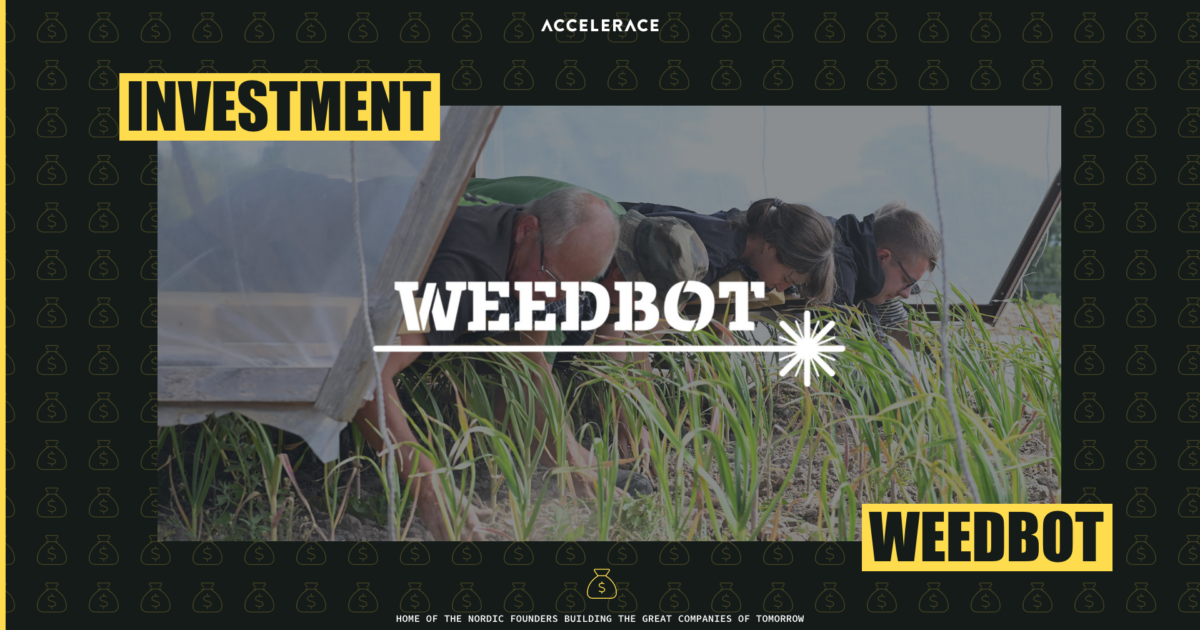New investment Weedbot aiming to make organic farming more affordable

Organic farming is still in its infancy
Even though the agricultural land being farmed organically went up by 50 % from 2015-2020, by the end of that period only 9.1% of Europe’s agricultural land was being farmed organically¹. However, as we are looking for more organic agriculture for environmental and health reasons, farming in this manner has to be more affordable and easier. But there are challenges that hold us back in our shift to less reliance on conventional farming and the pesticides it uses to remove weeds.
“The planet cannot endure the current use of pesticides, and we hope that our investment can help the agricultural industry shift towards a more sustainable method” – David Today Ventzel, partner & fund manager at Accelerace.
Organic weeding is dependant on a shrinking manual labour force
Contrary to conventional farming, organic farming does not use pesticides to handle weeds in the field. Pesticides pollutes the ground and ground water in its vicinity and can even leave traces in the produce, which in turn ends in the food on our tables. But, weeding without the help of pesticides causes other issues for farmers. Firstly, organic weeding is traditionally (and still) done by hand. Workers will lie, faced down, behind a tractor and rip up the weeds as they slowly move across the fields. This is very slow and taxing work for the labourers, and therefore the work force is shrinking, making it very difficult for farmers to get the hands they need for their acres of organic produce. At the same time, it is very cost-inefficient compared to the use of pesticides.
Accelerace have invested in the solution
The Weedbot-team have worked tirelessly to develop a solution to the weeding problem and have created the Lumina: A machine to connect to the back of your tractor, that will keep the weed pressure low, without the need for manual weeding or the use of herbicides. The machine takes high resolution images of the ground and the connected AI then identifies which are crops and which are weeds that needs to be eliminated because of the way they steal the nutrition from the produce. Based on that identification, a high precision laser then eliminates the weeds, leaving the crops intact.
It will reduce the reliance on a shrinking working force, and make weeding on organic farms much cheaper.
“The team have proven that they can build a working solution to this problem, and the current tests they are undergoing in France are looking really promising. We believe that this is the future” – David Today Ventzel, partner & fund manager at Accelerace.
A more cost-efficient industry for the good of us all
If organic farming can become more cost-efficient for the farmers, it will be better for us all. It will make the conversion to organic farming more attractive so we can increase the number of organic farms. That will mean less ground and water pollution, and a healthier planet, but it will also mean cheaper organic produce in supermarkets, so more people can afford it.
WeedBot is already preparing for the next set of trials with customers in the South of Europe, in the autumn season.